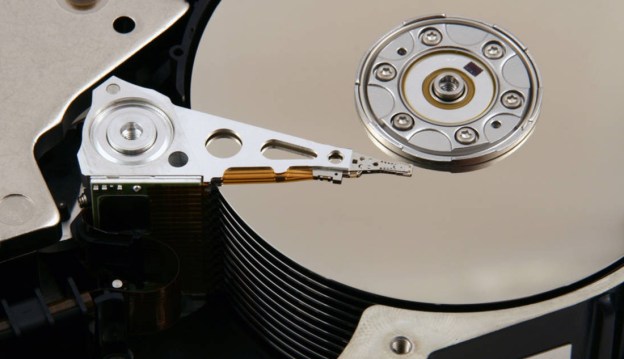
Table salt helps preserve food, flavor food, and keep snowy streets driveable, but now it may help push hard drive capacity to the next level. In Singapore, researchers have discovered that salt is key to multiplying hard drive capacity by six times what it is today. Wired.co.uk reports that Joel Yang, of the Institute of Materials Research and Engineering (IMRE), is using sodium chloride (salt) to increase hard drive capacity from 1.9 tarabits per square inch to 3.3 terabits per square inch.
Currently, hard drives are made of spinning magnetic disks that are covered in nanoscopic grains. These 7-8 nanometer grains are randomly placed on the disk in clumps of 10. Each of these clumps stores one bit of data. Yang’s new method is more efficient. It uses slightly larger 10 nanometer grains, but each one holds a bit of data. In addition, this new method organizes them in regular patterns instead of randomly placing them on the disk in clumps. To accomplish this feat though, the process needs salt. With salt added to the e-beam lithography solution, the grains can be shrunk to 4.5 nanometers without developing all new manufacturing equipment.
A spokesperson for the IMRE said that the process is like packing clothes for travel. The neater you pack them, the more clothes you can take with you.
While this is very cool and will certainly help increase hard drive sizes and capacities, we’d love to see Yang do the same thing for flash memory. Solid-state drives are still quite expensive and tend to have lower capacities. Solid-state drives are what power smartphones and tablets. With the MacBook Air and Intel’s Ultrabooks, SSDs are beginning to take over the laptop market as well.


